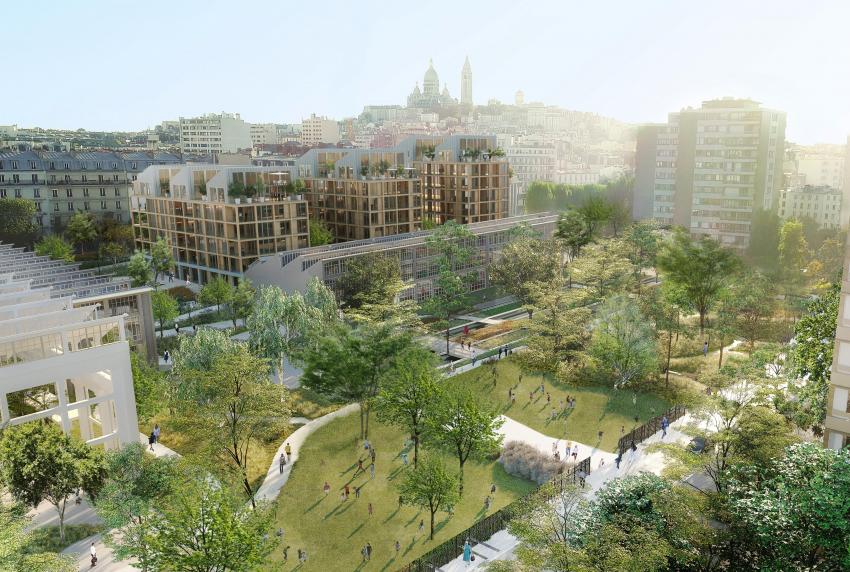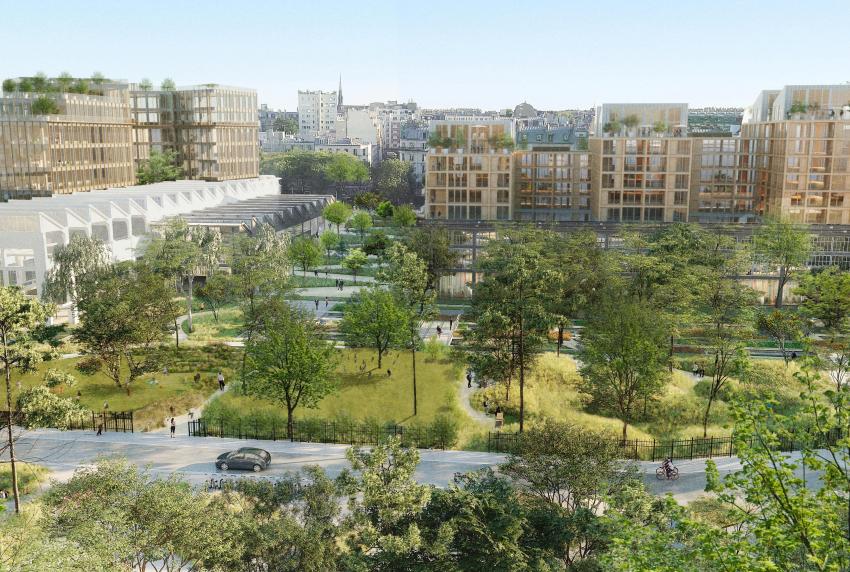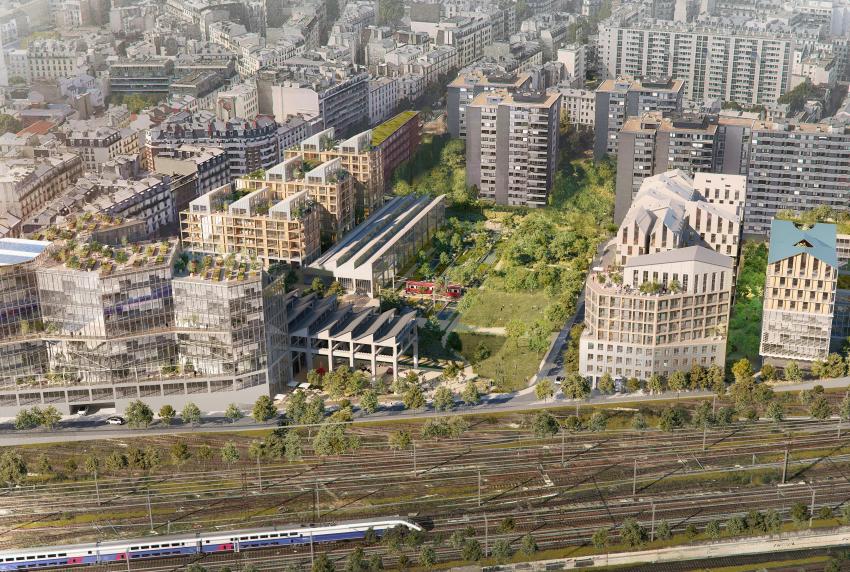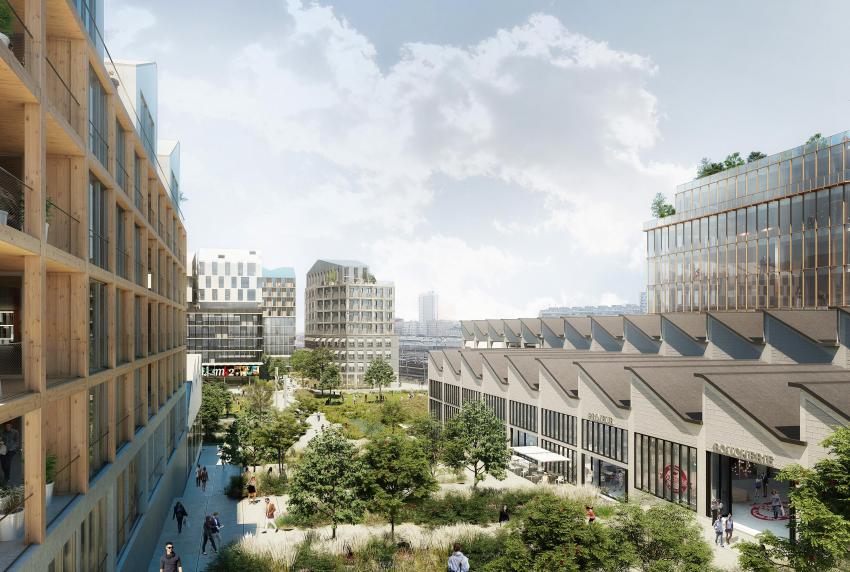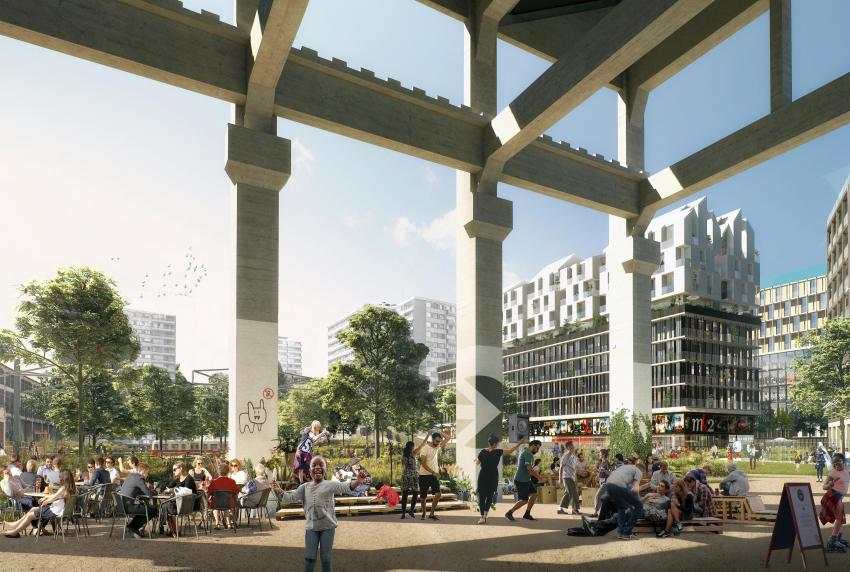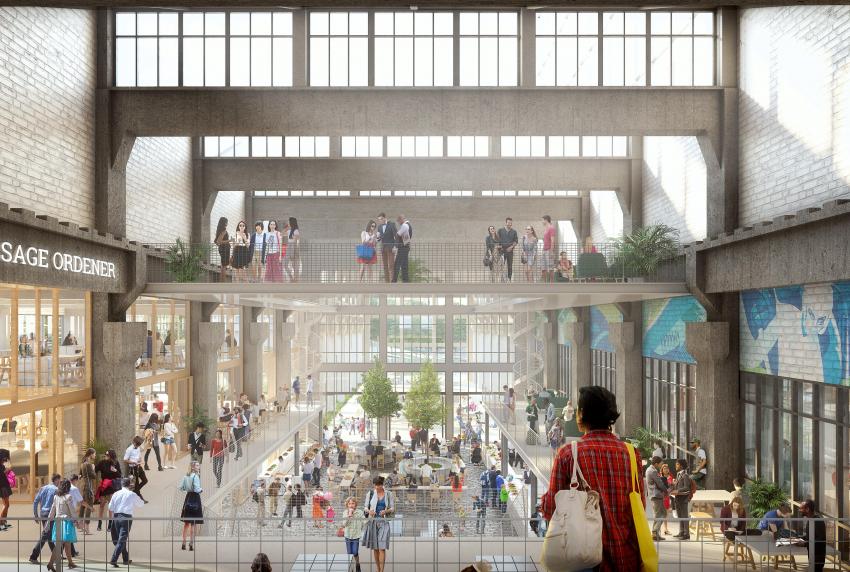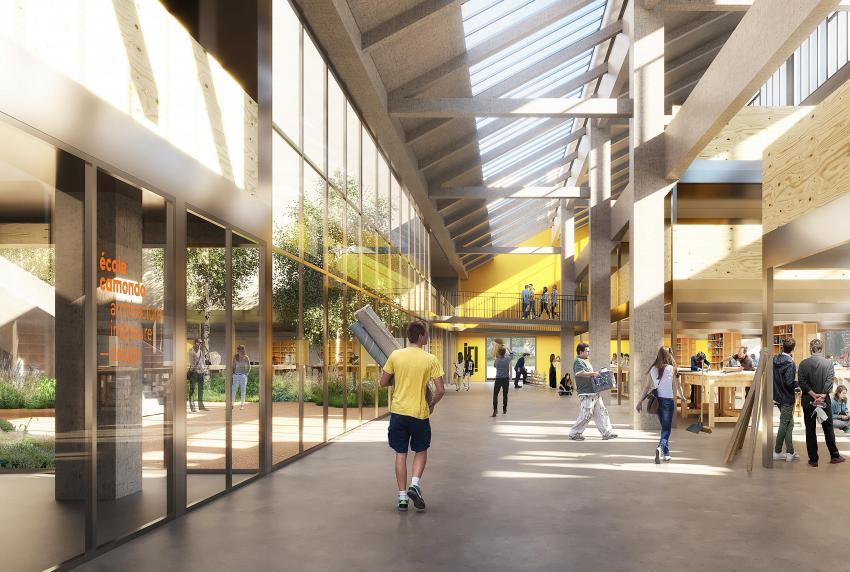SLA/Biecher Architectes/Emerige/OGIC
Paris
France
SLA and Biecher Architectes put sustainability at heart of mixed-use scheme
Danish landscape architects SLA and French firm Biecher Architectes, together with developers Emerige and Ogic, have won the international competition to develop the 3.7 hectare former railway site Ordener-Poissonniers in Paris, France. The new mixed-use ‘ecosystem neighborhood’ will house 1000 residents in a district with a new public school and graduate design school, industrial design incubators, offices, a cinema complex, theatre, food court, shops, and urban farming facilities.
The winning concept is called ‘Jardin Mécano’ (Mechanical Garden), which reflects the team’s aim to create a new urban ecosystem while preserving the site’s industrial heritage. Rasmus Astrup, partner in SLA, explained: “All is designed to make biodiversity, natural amenities, sustainability and post-industrial heritage the starting point of the entire development of Ordener-Poissonniers - a radical way of literally growing a new neighborhood out of the existing Parisian soil.”
At the heart of the neighborhood, a series of connected public green spaces will house outdoor restaurants, amphitheaters, band stands, and over one hectare of public gardens. These spaces reinterpret the traditional Paris cityscape as well as incorporating elements from the original railway site, including the original train tracks, a trolley ferry trench, railway signals and other industrial remains.
As well as retaining heritage features within the site, the designers looked to the future by making sure the concept for the new neighborhood acted as an example of sustainable development. Rasmus Astrup stated: “All roofs will consist of innovative solar tiles, de facto turning the whole neighborhood into one big solar power plant. Free heat from the local datacentre is extracted and used in the buildings. All in all, the project will have an exemplary environmental footprint above 94 percent – with heating costs for the area amongst the cheapest in Paris.”
Lucy Nordberg
TenderStream Head of Research
Explore the TenderStream archive here
Start your free trial here or email our team directly at customerservices@tenderstream.com
